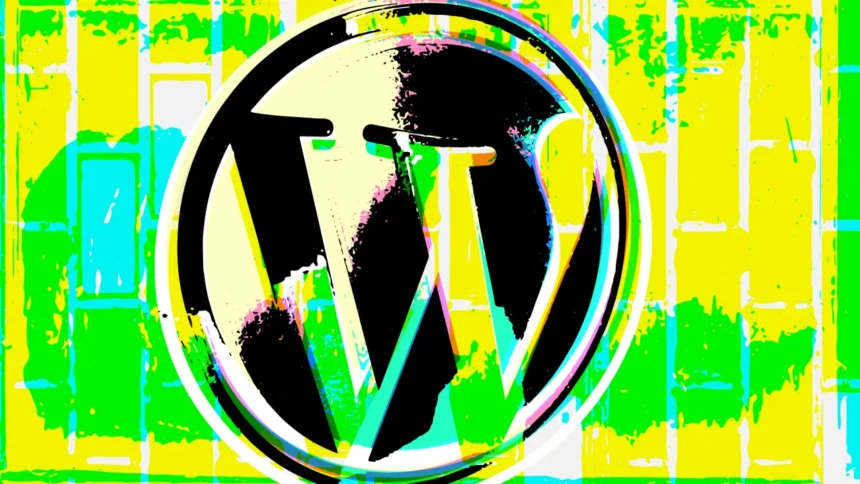The world of WordPress, a foundational technology that powers nearly 40% of the internet, is in the midst of a highly publicized and intense controversy. At the heart of this drama is a battle between WordPress founder and Automattic CEO, Matt Mullenweg, and WP Engine, a major hosting provider for WordPress-based websites. This dispute has quickly escalated from heated blog posts to legal action, affecting not just the companies involved but the wider WordPress community as well.
Let’s dive into the details of this unfolding drama, exploring the legal disputes, the implications for the WordPress ecosystem, and the concerns that have surfaced across the web development world.
A Brief Overview of WordPress and WP Engine
Before diving into the controversy, it’s important to understand the relationship between WordPress and WP Engine. WordPress is an open-source content management system (CMS) that is free to use and powers millions of websites. Users can either self-host WordPress on their own servers or opt for managed hosting solutions provided by companies like Automattic (the parent company behind WordPress.com) and WP Engine, which offer a more user-friendly, plug-and-play experience.
Automattic, founded by Matt Mullenweg, has long been a driving force behind the WordPress ecosystem. WP Engine, on the other hand, is a popular hosting provider that enables users to host websites built on WordPress without the technical overhead. While they both operate within the WordPress ecosystem, their recent conflict has exposed deep rifts between them.
The Catalyst: A Blog Post Sparks Outrage
In mid-September, Matt Mullenweg ignited the controversy with a scathing blog post where he referred to WP Engine as “a cancer to WordPress.” His primary criticism centered on WP Engine’s decision to disable revision history tracking for posts by default, which he argued was a violation of user trust. According to Mullenweg, revision history is integral to WordPress’s commitment to data transparency and control, and WP Engine’s move to turn it off by default was a cost-cutting measure at the expense of users.
Mullenweg didn’t stop there. He also criticized WP Engine’s investor, Silver Lake, accusing them of failing to contribute meaningfully to WordPress’s open-source development. Furthermore, he claimed that WP Engine’s use of the “WP” brand was misleading, as it implied a direct association with WordPress, which in reality, does not exist.
This explosive post set the stage for what would become a bitter public dispute.
Legal Threats and Cease-and-Desist Letters
In response to Mullenweg’s accusations, WP Engine fired back with a cease-and-desist letter, demanding that both Mullenweg and Automattic retract their comments. The letter also argued that WP Engine’s use of the WordPress trademark was protected under fair use, emphasizing that they were within their legal rights to reference “WordPress” in their branding.
Adding more fuel to the fire, WP Engine accused Mullenweg of attempting to strong-arm the company into paying a hefty fee for the use of the WordPress trademark. According to WP Engine, Mullenweg threatened to take a “scorched earth nuclear approach” if they refused to comply with his demands.
Automattic, in turn, issued its own cease-and-desist letter to WP Engine, accusing them of violating WordPress and WooCommerce trademark usage policies. The WordPress Foundation also updated its Trademark Policy page, directly addressing WP Engine’s use of the “WP” brand, stating that the abbreviation “WP” is not part of the WordPress trademark. However, it cautioned against using it in ways that could confuse users into believing WP Engine was officially affiliated with WordPress.
The Ban That Shook the WordPress Community
The conflict escalated when Mullenweg made the drastic decision to ban WP Engine from accessing key resources on WordPress.org. Although WordPress plugins and themes are open-source and available to everyone, hosting providers like WP Engine rely on specific services to fetch and update these resources. By cutting WP Engine off from these services, Mullenweg effectively broke the update mechanisms for many websites hosted by WP Engine, leaving some sites exposed to potential security risks.
This move drew widespread backlash from the WordPress community. Smaller websites and developers who depended on WP Engine’s services found themselves caught in the crossfire, unable to update their plugins and themes. Many questioned Mullenweg’s decision, accusing him of using his control over WordPress.org to punish WP Engine and harm its customers.
In response, WP Engine released a public statement condemning Mullenweg’s actions as “unprecedented and unwarranted,” accusing him of deliberately interfering with the normal operations of the WordPress ecosystem. WP Engine argued that the ban not only hurt its customers but also impacted developers and open-source contributors who relied on WP Engine’s tools.
A Temporary Truce
On September 27, after mounting pressure, WordPress.org lifted the ban on WP Engine, temporarily restoring access to the resources. However, this reprieve was short-lived, as the access was only granted until October 1, giving the companies limited time to resolve their dispute.
Mullenweg attempted to clarify the situation in a follow-up blog post, stating that the conflict was purely about trademarks and WP Engine’s refusal to come to a licensing agreement. He expressed frustration that WP Engine had repeatedly “strung them along” without offering a resolution.
The broader WordPress community, however, remained on edge. Many developers and service providers feared they could be the next targets of trademark enforcement, leading to calls for clearer guidelines on the use of the WordPress name and branding.
Trademark Wars: A Growing Concern
To complicate matters further, the WordPress Foundation has recently filed to trademark terms like “Managed WordPress” and “Hosted WordPress,” raising concerns that these trademarks could be wielded against other hosting providers and businesses in the future. Many in the WordPress ecosystem worry that Automattic’s control over these trademarks could stifle competition and innovation within the open-source community.
John O’Nolan, founder of the open-source CMS Ghost, added his voice to the chorus of criticism, warning that the concentration of control within the hands of one individual could pose a serious threat to the diversity and health of the web. In a post on X, he argued that “the web needs more independent organizations, and it needs more diversity. 40% of the web and 80% of the CMS market should not be controlled by any one individual.”
WP Engine’s Response and Path Forward
As the October 1 deadline loomed, WP Engine took steps to address Automattic’s claims by updating its website. The company modified its footer to clarify that it is not directly affiliated with the WordPress Foundation and changed the names of its hosting plans to remove references to “WordPress.” Instead of “Essential WordPress” and “Core WordPress,” WP Engine’s plans are now simply called “Essential” and “Core.”
WP Engine issued a statement claiming these changes were made to “moot” Automattic’s concerns. The company also reiterated that it had done nothing wrong in using the WordPress trademark and maintained that Mullenweg’s interpretation of trademark law was flawed.
On October 1, WP Engine announced that it had deployed its own solution for managing plugin and theme updates, allowing its customers to regain full functionality.
The Bigger Picture: What This Means for the WordPress Community
While the conflict between Automattic and WP Engine remains unresolved, it has already raised important questions about the future of WordPress and its open-source community. The battle over trademarks, hosting, and control has highlighted the tensions between WordPress’s open-source ethos and the commercial realities of the companies that depend on it.
As the legal fight continues, developers and site owners alike are left wondering whether the tools they rely on today could be restricted tomorrow. The drama between Mullenweg and WP Engine may be just the beginning of a broader reckoning for the WordPress ecosystem—one that will shape the future of the web itself.










